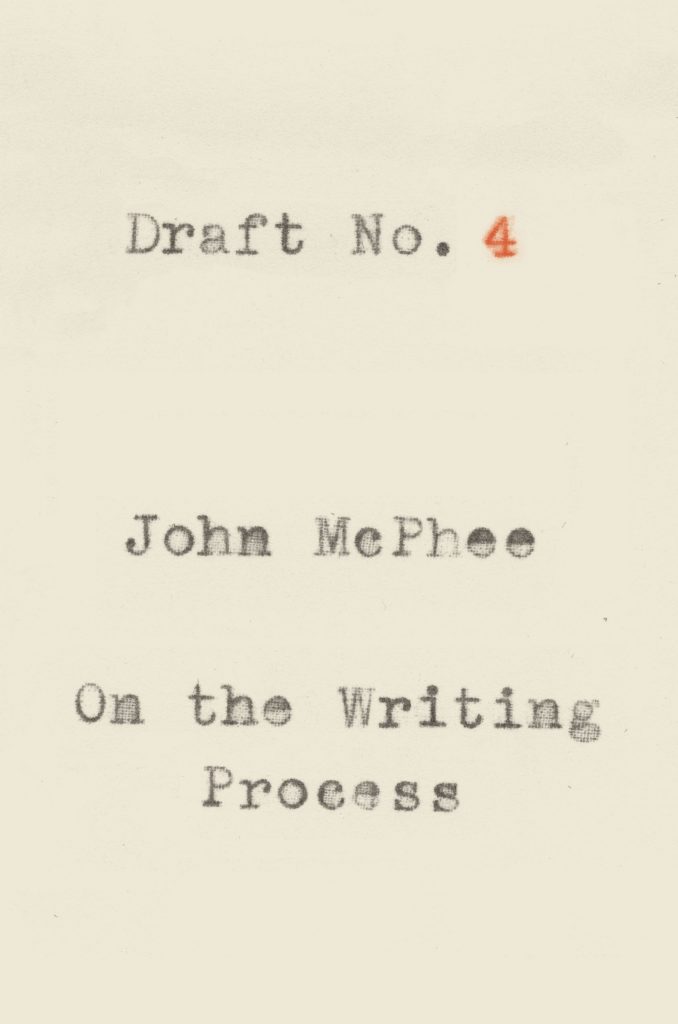
I know of no profession more demanding of reassurance than writing. Bricklayers, doctors, taxi drivers and taxidermists do not generally torment themselves about their crafts, or suffer long periods of sterility, or treat a bad day on the job as if it’s somehow a mark against their very nature –proof, at last, that they aren’t cut out for the life they are leading. “A badly made sentence is a judgment pronounced upon its perpetrator,” wrote William Gass, “and even one poor paragraph indelibly stains the soul.” No bricklayer, in the history of the profession, has lost sleep over an ineptly laid brick or felt lasting embarrassment over an excess of mortar. Nor can writers hope – as doctors can – for some new breakthrough in technology or technique. The sawbones of centuries past bear little resemblance to today’s healers, but the writers of yesterday, today and tomorrow confront the same blank page. The upside to the immutability of the craft is the permanent relevance of the literary tradition (there are no expiration dates in literature), including the writing advice that has trickled down to us through the centuries. It is a good bet, therefore, that John McPhee’s Draft No. 4, a clever dissection of the writing process as he understands and has been teaching it for over four decades, will be inspiring and instructing writers for generations to come.
McPhee is a nonfiction writer, having spent most of his career working for The New Yorker and Time, but aspiring fiction writers – even if they have no need of the lengthy sections on fact-checking or interviewing subjects – will nonetheless benefit from this book, not least for the emotional support it offers.
I had submitted half a dozen pieces, short and long, and the editor […] had bought them all. You would think that by then I would have developed some confidence in writing a new story, but I hadn’t, and never would. To lack confidence at the outset seems rational to me. It doesn’t matter that something you’ve done before worked out well. Your last piece is never going to write your next one for you.
In another section, he describes, in detail, what that lack of confidence looks like: two weeks spent lying on a picnic bench, staring at the sky, not touching a pen or keyboard – all just a part of the “masochistic self-inflicted paralysis of a writer’s normal routine.” And this, coming from a four-time Pulitzer Prize nominee, author of dozens of books!
Other sections are more practical. “Structure,” for example, comes with diagrams, detailing the various ways a writer might choose to tell the same story, outside of the usual chronological approach, provided that the writer does not impose an inorganic design on the reader. “Readers are not supposed to notice the structure. It is meant to be about as visible as someone’s bones.” McPhee complements his advice with anecdote, drawing on his decades of writing experience and published work to illustrate his points or describe how he arrived at a particular decision in his writing. That he manages to make these passages helpful is one triumph; that they are also often funny or inspiring is another. That having been said, veterans of the “writing 101” genre will recognize all the old saws.
Writing is selection, and the selection starts right there at Square 1. When I am making notes, I throw in a whole lot of things indiscriminately, much more than I’ll ever use, but even so I am selecting. Later, in the writing itself, things get down to the narrowed choices.
Earlier, he tells us about details: “few (if any) are individually essential,” but collectively they are “absolutely essential.” If such expressions, shorn of their context, seem stale, well, that’s hardly McPhee’s fault.
Draft No. 4 is equal parts writing memoir and writing guide, cobbled together from a handful of McPhee’s older New Yorker pieces and from his own notes as a creative writing teacher. It does not reinvent the writing manual, or offer any startlingly new insight or advice; it does, however, make a monumentally difficult undertaking seem approachable, and offers the gentle encouragement aspiring writers need to get going.